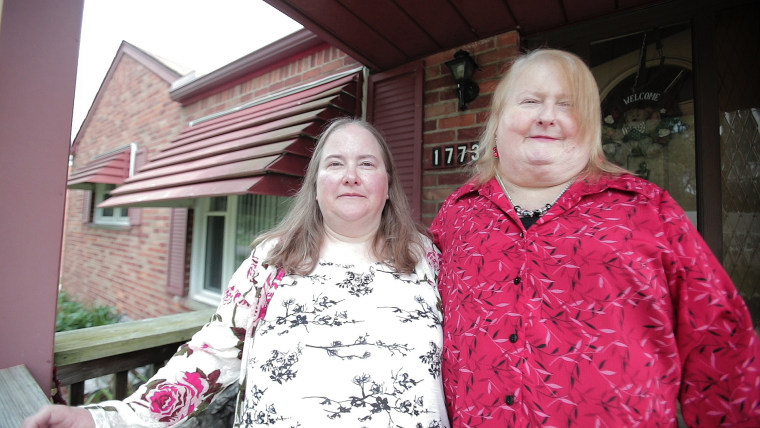The Supreme Court agreed Monday to hear the rights cases of three LGBTQ workers. At stake is whether sex discrimination, covered by Title VII of the 1964 Civil Rights Act, also prohibits discrimination on the basis of sexual orientation and gender identity.
Stakeholders and advocates on both sides of the issue welcomed the high court’s decision in the hopes that the contentious legal question would soon be decided in their favor.
“The growing legal consensus is that our nation’s civil rights laws do protect LGBTQ people against discrimination under sex nondiscrimination laws,” Sarah Warbelow, legal director for LGBTQ advocacy group Human Rights Campaign, said. “The Supreme Court has an opportunity to clarify this area of law to ensure protections for LGBTQ people in many important areas of life.”
Alliance Defending Freedom, the conservative legal group that filed a petition asking the high court to hear one of the three cases, said lower court rulings have overstepped their bounds and “redefined” the term “sex” in Title VII “to conflict with the word’s well-understood meaning since the law’s enactment in 1964."
“Neither government agencies nor the courts have authority to rewrite federal law by replacing ‘sex’ with ‘gender identity’— a change with widespread consequences for everyone,” John Bursch, the organization’s vice president of appellate advocacy, said in a statement.
THE CASES
Two cases deal with sexual orientation and one case deals with gender identity. The two involving sexual orientation — Bostock v. Clayton and Altitude v. Zarda — will be consolidated.
Katie Eyer, a law professor at Rutgers University, told NBC News that the split in the lower court rulings played a role in prompting the Supreme Court to review the cases.
“It’s a very important issue and one on which the lower courts have been divided,” she said.

In Zarda v. Altitude Express, the 2nd U.S. Circuit Court of Appeals affirmed last February that the late Donald Zarda, a skydiving instructor, was unlawfully fired from Altitude Express for being gay. With the 10-3 decision, the 2nd Circuit joined the 7th U.S. Circuit Court of Appeals, which in April ruled that Indiana educator Kimberly Hively had been fired due to her sexual orientation and was protected by Title VII.
By contrast, in Bostock v. Clayton County, the 11th U.S. Circuit Court of Appeals dismissed the case of Gerald Lynn Bostock, who claimed he was fired from his job because of his sexual orientation. In May 2018, Bostock’s attorneys filed a petition with the Supreme Court to request that it take up his case.
The case of R.G. & G.R. Harris Funeral Homes Inc. v. Equal Employment Opportunity Commission, raises the issue of Title VII’s applicability to transgender employees. The case involves Aimee Stephens, a transgender woman who was fired from a Detroit funeral home after she informed her employer that she was beginning her gender transition.

In March 2018, the 6th U.S. Circuit Court of Appeals sided with Stephens and the Equal Employment Opportunity Commission, ruling that Title VII of the Civil Rights Act of 1964 protects transgender workers and that an employer’s religious beliefs cannot be used to justify discrimination.
“What happened to me was wrong, it was hurtful, and it harmed my family,” Stephens said in a statement Monday after the announcement. “I hope the Supreme Court will see that firing me because I’m transgender was discrimination.”
Melissa Zarda, who took on her brother Donald Zarda’s court case after he died unexpectedly in 2016 at the age of 43, said she will continue the battle her late brother started.
“I couldn't believe you could be fired for being gay,” she said following Monday’s announcement. “I just want to continue to support my brother by fighting for him in this case.”
The Trump administration has made its position clear on the scope of Title VII. Under the current administration, the Department of Justice submitted an amicus brief in the Zarda case opposing the extension of Title VII discrimination protections on the basis of sexual orientation, and another in Stephens’ case siding with the the funeral home. In the latter case, the federal government is pitted against itself, since the Equal Employment Opportunity Commission is a defendant in the case.
The Supreme Court will hear the cases next term, which begins in October.
DISCRIMINATION & PROTECTIONS
Research shows that LGBTQ people are much more likely to experience discrimination at work than their heterosexual and cisgender peers. A 2017 Harvard study found more than one in five lesbian, gay, bisexual and transgender Americans report experiencing employment-related discrimination.
The 2015 US Transgender Survey, which specifically focused on trans individuals, found one-third of transgender respondents “reported being fired, denied a promotion, or experiencing some other form of mistreatment related to their gender identity or expression.”
Currently 28 states have no protections for LGBTQ people in employment, housing or public accommodations, according to the Williams Institute at the University of California, Los Angeles. A brief the organization released last month found there are an estimated 8.1 million LGBTQ workers, 16 and older, living in the United States, and about half of these workers — 4.1 million — live in states without protections against LGBTQ employment discrimination.
To address the legal patchwork left by state law and court rulings, Democrats in Congress have reintroduced the Equality Act this legislative session. The act would modify existing civil rights legislation to ban discrimination against LGBTQ people in employment, housing, public accommodations, jury service, education, federal programs and credit.
THE STAKES
A Supreme Court ruling against the LGBTQ workers involved in the cases would be “disastrous” and would relegate “LGBTQ people around the country to a second-class citizen status,” according to James Esseks, director of the LGBT and HIV Project at the American Civil Liberties Union, which is counsel for the Zarda estate and Stephens.
“The LGBTQ community has fought too long and too hard to go back now, and we are counting on the justices not to reverse that hard-won progress,” he added. “The potential consequence here is widespread changes in the civil rights protections that LGBTQ people currently have.”
Esseks said the ramifications of the Supreme Court ruling will not be limited to employment. If Title VII fails to protect LGBTQ employees, then the reasoning could be extended to other federal statutes, he said.
For example, LGBTQ students, perhaps most famously Gavin Grimm, have brought their sex discrimination claims before the court, arguing that to be denied access to sex-specific facilities such as locker rooms and restrooms constitutes sex discrimination. The same logic applies to housing and health care, where LGBTQ plaintiffs have claimed sex discrimination under the 1968 Fair Housing Act and sued insurance providers that failed to cover transgender-related health care.
The Alliance Defending Freedom, in its petition filed to the Supreme Court in the Aimee Stephens case, argued that having sex discrimination laws cover transgender individuals “impedes women’s advancement” and would mandate that women-only spaces be “opened to males who identify as women.”
“Substituting ‘gender identity’ for ‘sex’ in nondiscrimination laws also threatens freedom of conscience,” the petition continued. “Statutes interpreted that way have the effect, for instance, of forcing doctors to participate in — or employers to pay for — surgical efforts to alter sex in violation of their deeply held beliefs.”
Despite the court’s 5-4 conservative majority and the “politically charged” nature of the issue, Eyer of Rutgers Law School said she is optimistic the justices will side with the LGBTQ plaintiffs.
“On the law, these are cases both gay and transgender plaintiffs should win,” she said.
“Justice Kennedy,” she added, “was fairly reliably able to see the logic of anti-LGBT discrimination claims,” Eyers continued. For LGBTQ advocates, she added, “It would have been ideal if he were on the court when these cases were decided.”
While there is a chance the justices could issue a narrow ruling as they did in the Masterpiece Cakeshop case, Eyers said she believes there is a “pretty good likelihood they will resolve it.”
Eyers said a decision in favor of LGBTQ workers would constitute a “real win for equality on the ground, where it matters most.” If the court rules the other way, she said the best hope for advocates of LGBTQ workers’ rights would be that the loss would “help to push forward legislative efforts,” like the Equality Act.
Regardless of the outcome, Warbelow of Human Rights Campaign argued, “It’s critical that Congress pass the Equality Act to address the significant gaps in federal civil rights laws and improve protections for everyone.”



